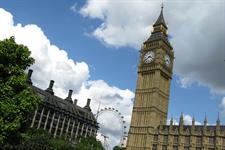Social care charities have been given 15 months to repay an estimated £400m in back-pay for sleep-in providers
Conservative and Labour MPs have questioned the government’s position on the 15-month deadline for social care charities to repay approximately £400m in back-pay to sleep-in care workers.
Speaking in the House of Commons on Tuesday, Rebecca Long-Bailey, the shadow business secretary, asked Greg Clark, the business secretary, whether the government would commit funding to social care providers to pay sleep-in care workers back-pay of up to six years.
Sleep-in care workers were originally paid a flat-rate, but two employment tribunal decisions last year forced the government to change its policy and make the workers eligible for the minimum wage.
This led to HM Revenue & Customs pursuing charities for back-pay, which Mencap claimed could cost the sector as much as £400m, and led to a new government initiative, the Social Care Compliance Scheme, being announced last week to address the problem.
The SCCS gives social care organisations a year to work with HMRC to identify the amount of back-pay they owe, and an additional three months to settle any outstanding sums with their workers.
Long-Bailey told parliament that the government’s proposals had been branded “inadequate” and many charities felt they were “writing their own suicide notes” if they took part.
She asked Clark whether the government would “commit the necessary funding in the Budget to avert a crisis in the care sector, which could see many businesses struggle to survive, impacting on already fragile care services, and leave thousands of care staff without the wages they are owed”.
Clark responded that the interim proposal had been made to ensure a “robust” solution to the issue of back-pay could be formed by the government.
The government’s statement announcing the SCCS confirmed that it was talking with the European Commission to see if government support for the social care sector would contravene EU state-aid rules.
In questions to the business department, which also took place in the Commons on Tuesday, Peter Aldous, the Conservative MP for Waveney, said the SCCS “unfortunately adds to the uncertainty facing the social care sector” and urged the government to “get back round the table with the sector to find an acceptable long-term solution”.
Margot James, a business minister, said in response that the department was working with the Department of Health and the Department for Communities and Local Government to put pressure on the Treasury to provide a long-term solution to the back-pay issue.
Kevin Hollinrake, the Conservative MP for Thirsk and Malton, asked whether it would be sensible “to consider revisiting the legislation in this place simply to return to the pre-tribunal position”.
James said even if the government changed the law, which she said it certainly would not, “it would not have any impact on workers’ eligibility for historical back-pay liabilities”.
